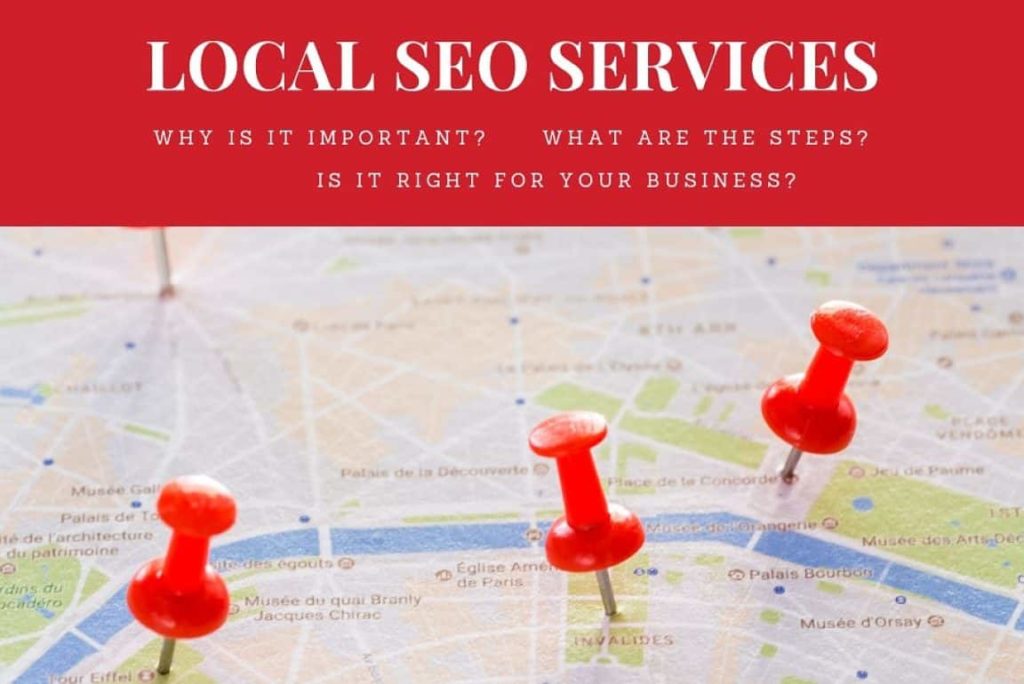Guest Blogging for Real Estate
We address questions and concerns about for real-estate guest blogging.
- What is real-estate guest blogging (or posting)?
- What is the difference between Guest Blogging and Guest Posting — *Hint…nothing
- Will it increase my real-estate website rank on Google?
- Is it a safe, “white-hat” SEO tactic?
- What is the process for real-estate guest posting? What changed in Google’s algorithm?
- We also cover what you should avoid when guest posting for backlinks.
Once you read through this material, you’ll understand exactly how to use guest blogging effectively to boost your real estate SEO and drive traffic, leads, and new clients to your website.
How and Why Does Guest Blogging Work?
Real Estate SEO is an ever-changing business. The only consistent thing is that the processes for ranking a real-estate website will be totally different in a year. It has been said that Google makes about 400 changes to its algorithm—and believe me—each and every one of them can affect your rankings.
We cover one of the common practices that professional bloggers and the top real-estate companies use to market their blogs and increase their search engine rankings: The Guest Blog.
Most Real Estate Agents Don’t Know What Makes a Website Rank
“Unfortunately, many REALTORS do not know what is needed to organically rank their website.” https://t.co/zpORGoSO8D #SEO #RealEstate #SearchEngineOptimization pic.twitter.com/rzjw58hxIS
— One Click SEO (@OneClickSEO) November 16, 2018
What has Changed in the Google Algorithm?
We recently went through Mobilegeddon, when Google began to remove websites from their search results that were done via mobile devices if your site was not mobile friendly. The most recent core update was not to penalize any websites based on quality (which most updates do) but to create more parity between the intent of the person doing the search on Google and the results they see. Google provides a free process to check and verify that your website is mobile friendly. Click here to check your site. You can also use the best free SEO audit tool – which also covers if your site is mobile friendly.

For instance, if the Big G had determined that when people search for “best realtor,” they wanted to see websites that showed lists of real-estate agents and their reviews/testimonials, it wouldn’t matter what you did. If you’re not a “list type” of page, you won’t rank well for those searches.
Google is looking much closer to the INTENT of the searcher and the TYPES of sites they find (in a Google search). They measure whether or not the style of site fits a user’s intent by looking at bounce rate, time on site, and other Quality Metrics. If Google has determined you are looking for a local business, they will show a Map Pack on the top of their results. An example of a local search for real estate that pulls a Map Pack, think “Realtor around me”. If you want to dominate those localized searches you will need to optimize your Google My Business for real estate.
Changes in Real-Estate SEO Tactics
Not long ago, BLOGGING was all the rage in the world of real-estate digital marketing. You couldn’t go anywhere without someone telling you that if you weren’t blogging about real estate, then you were missing the boat. Many busy Realtors were led to hire professional copywriters to create blogs for them. To be a top SEO agency, you would have to employ your own copywriters.
Please don’t misinterpret!
We’re not saying that your real-estate website shouldn’t be pushing out original content in the form of blogs and socially syndicating them for exposure and to generate traffic. That still needs to happen!
The above process is describing content marketing in its most basic forms. But let’s first step back and look at exactly WHY content marketing helps the SEO of your website.
Social Signals.
Social signals are when someone shares content from YOUR website on a social media platform. Many SEO gurus have claimed that social signals do not directly affect SEO, but others claim it does have both direct and indirect ranking factors. No one really argues that social signals—whether referring to your brand or linking back to your site—are a good thing.
Backlinks.
The tangible potency of a content marketing campaign comes from the natural creation of backlinks to your site from other websites within the same business niche or vertical. When you write good copy and have it pushed throughout the Internet, the intent is that someone will create a link from their website that will point to your awesome content! Those backlinks are the #1 factor for ranking any website.
HOW DO PROFESSIONAL BLOGGERS
BRAND AND MARKET THEIR BLOGS?
What is Real-Estate Guest Blogging?
Finally! We’re getting to the topic at hand. What many SEO agencies have found out is it’s great to do the “write great content and links will come” process. It’s totally natural and that’s what Google is looking for. Many have said they have found a better way.
Enter the Guest Post or Guest Blog
What the current trend is to offer, to the owner of a strong authoritative website, that you will write some great, original content for THEIR website. When writing that content, you would, of course, add a back that points back to your website. Seems like a legit offering; a true value exchange is happening. One site wants and needs some original content, and the other site wants and needs a backlink . . . now everyone is happy.
Guest Blogging Run Amok
Just like everything else in the past, once the digital marketers take possession of something new, they exploit it to death. If you have an authoritative website in any niche right now, I’m sure that you’re bombarded with hundreds of emails offering to provide you with some “quality content” for your website.

We have now made the transition from paying for blogs to be written to offers from other people to write our blogs free (or for a backlink). This type of transaction does add to the challenge of getting your content posted on other real-estate sites. When people are bombarded with the same offer, you need to step out and do something different.
Getting Your Own Backlinks from Guest Postings
This is where the rubber meets the road. You’re a realtor. You have your own real-estate website. You’re a DIY real-estate SEO person. You’re already writing original content or having professional copywriters create content for you.
Now you want some of those juicy backlinks from quality real-estate websites. You’ve decided to take (what you heard to be) the white-hat route and started to look for guest posting opportunities. But where exactly do you start?
You need to know that getting an article published on someone else’s website is not as easy as it sounds. Although we’re not going to go into great detail on this subject, we lay out the steps for guest posting for real-estate SEO.
- It’s crucial to do some research. Find other real-estate websites that have good domain metrics. Many Realtors are under the impression that just because their domain is old, that gives it authority. Find out the truth about domain age and SEO. You will also want to ensure that the site your backlink will come from has proper SEO. If you don’t already have a good SEO platform for reviewing metrics/rankings and other information, we recommend SEMrush. You can get a free 14-day trial of SEMrush.
- Don’t overlook this IMPORTANT piece of information: Backlinks that point to your website from “bad” sites WILL HURT YOUR SEO! Choose wisely!
Select the Best Real-Estate Blogging Sites that Accept Guest Posts
Use the tools referenced above to find the right real-estate websites that will accept guest posts. We are NOT talking about sites like RealtyTimes or ActiveRain here; those are more quasi-web 2.0 sites. The websites you want are individual agent/team/broker websites that have a strong web presence. Make sure that the links pointing TO the site you will be guest posting on have strong domain metrics and a good link profile.
Some SEO companies specialize in finding quality real-estate websites and get your blog posted. I have found only one (of many) that actually was worth the money. Scroll to the bottom to get the LINK
Finding the “Best” Guest Blog Sites
Once you have created the list of potential guest blogging sites, then you need to reach out to each and every one of them. Look up the whois/where is, use the contact form on their site, even give them a call to talk to who can authorize you having content posted on their website. This is why you get all of those junk emails offering to write content for you.
Many SEO Agencies use automated emails for this. I recommend a slightly different process. Look at each domain option closely and make bigger efforts to get on the sites that pass muster. This probably means multiple emails, phone calls, and outreach from social media platforms. Remember, however, that selection of the sites for your Guest Blog determines how much SEO juice you get from Guest Posting.
Once you get to the decisionmaker for the site, offer them your value swap. Explain that you will have some original, quality content put together specifically for their site and that all you’re asking for is a little backlink to reference you somewhere in their blog post.
If you get through that, then put together the content for them. If you’re a good writer, then write the blog post yourself. Keep in mind: many realtors hire copywriters who put their content together for them. One way or the other, you need to get the original content ready.
SEO the SHIT Out of that Blog!
In the context of the above title, review SEO Basics – meta titles and H1,H2 and H3 Headers for help or for just as a refresher. We can’t stress the importance of SEO enough.
Make sure that you license each photo. DO NOT STEAL PHOTOS FROM THE INTERNET. Verify that you have proper tags in the photos for SEO.
Limit each guest post to an absolute minimum of 550 words. However, 900–1500 word blogs work better as long as they are not full of “fluff” copy. Don’t stretch a 700-word article out to 1400 words just to get a larger word count.
Limit number of Links within the guest post itself. One or two internal links will do. These links will be from within the article to other pages on the site to which it will be posted. Let’s say you have the words, “the effectiveness of an open house,” in your guest-post article and the destination has its own article on “the effectiveness of an open house.” THAT would be a perfect internal link. The inclusion of a good internal link is critical: a blog post on a site that has NO internal links looks extremely fishy to Google!
Use specific authority links. This is another biggie for any blog post, especially a Guest Post with a link pointing back to your site. Find several terms in the blog that you can use to link out to a high-authority website that covers the topic in detail.

Obtain outbound authority links. I cannot stress how important these outbound authority links are. Also, don’t unnecessarily link to the #1 thing in Google for that term. The outbound authority link must be a great example of the anchor text you use. Showing that your blog has three outbound links and well-written, high-authority sites when they see YOUR outbound link also shows that you’re in good company. Great choices for outbound authority links can substantially make a particular page rank better, and you want the post with your backlink to get traffic.
Submit the article for posting. We strongly recommend submitting the article in a TXT file (like Wordpad) that has the HTML included for posting. This ensures that your hard work on the links and formatting won’t go to waste. Also, many will request that you submit your blog for “approval” before they guarantee to post.
Check the article once live. Double-check the on-page SEO for your article ASAP. If something isn’t correct, the longer you wait to request a correction, the lower your chances of updating the blog. Ensure that all the links used are present, have the same anchor text, and are “follow” links. Double-check the headers, the title, and the description; verify that the copy is as you submitted it. SEOquake is a perfect little gem of a free marketing tool for this task.
What is the Right Marketing Tool for the Job?
All of these stages are critical. Missing even one critical step could waste a lot of time, effort, and money. This could ultimately hurt your website. We recommend several FREE tools for checking the domain metrics and on-page SEO for your guest posts:
SEMrush: SEMrush is a full-featured SEO platform with a ton of features. You only NEED to use the tools for a while and document all of your findings. Their 14-day free trial is a pretty good option for those that are “thrifty.” Watch out—this is a top-notch SEO tool, and you may find yourself becoming addicted!
SEOquake: This tool is totally free forever and is one of our absolute favorite tools for checking on-page SEO. Even with the TONS of expensive, paid systems we subscribe to at DEAN Knows, this tool is used DAILY. It’s a Chrome Add On, so it installs within the Chrome browser. If you’re reading this webpage in a Chrome browser, click HERE to install it from the Chrome store.
FREE SEO Site Audit: This one is ours, and we offer an extensive FREE SEO Site Audit for on-page SEO and many other factors. Please be picky with the sites you run through here. To limit others’ misuse of our resources, we only allow 3 full reports per email address.
Sinium SEO: This site offers a plethora of SEO tools. Because the entire thing is free, none do a great job, but it’s a full-featured set of things you can do.
As we promised, HERE is the website that delivers on getting your guest post on an authoritative real estate website.
Too Much Work for You?
Well, after telling you exactly how to improve your website’s SEO by using Guest Posting, we MUST offer our shameless plug. If your long-term business goals need a Digital Marketing Strategy…We Can Help.
Click HERE to for Pricing.
or
Click HERE to Ask Us a Question
We specialize in the most challenging and Hyper-Competitive SEO Verticals, such as the following:
- Real Estate SEO
- Law Firm SEO
- Healthcare SEO
And we do deliver results





